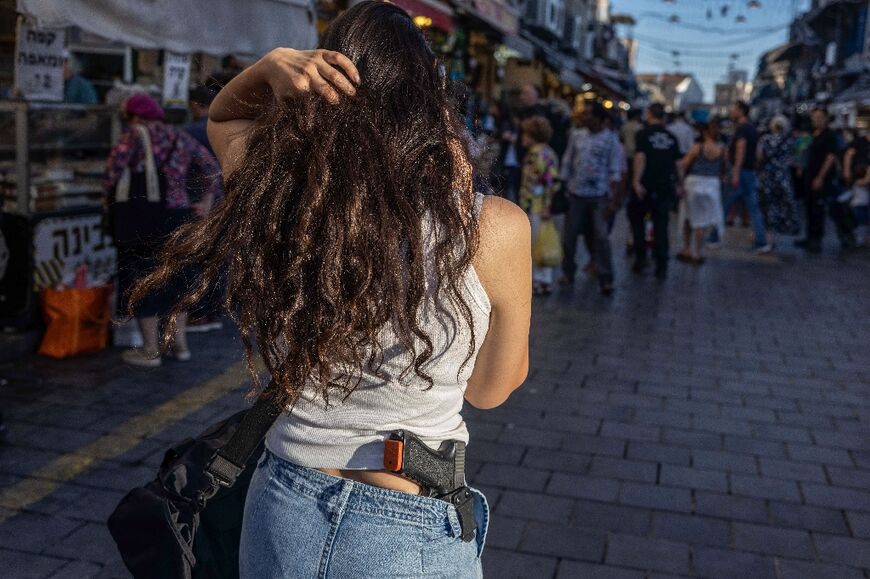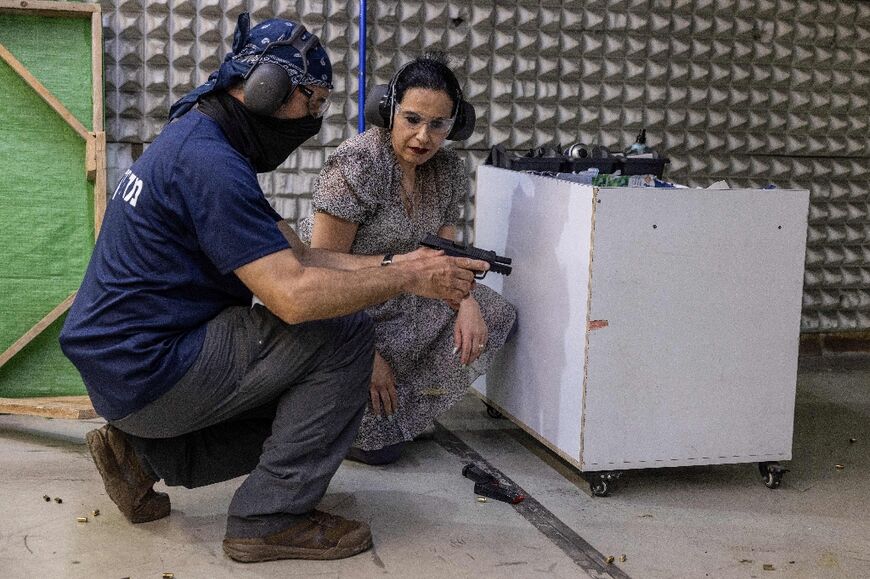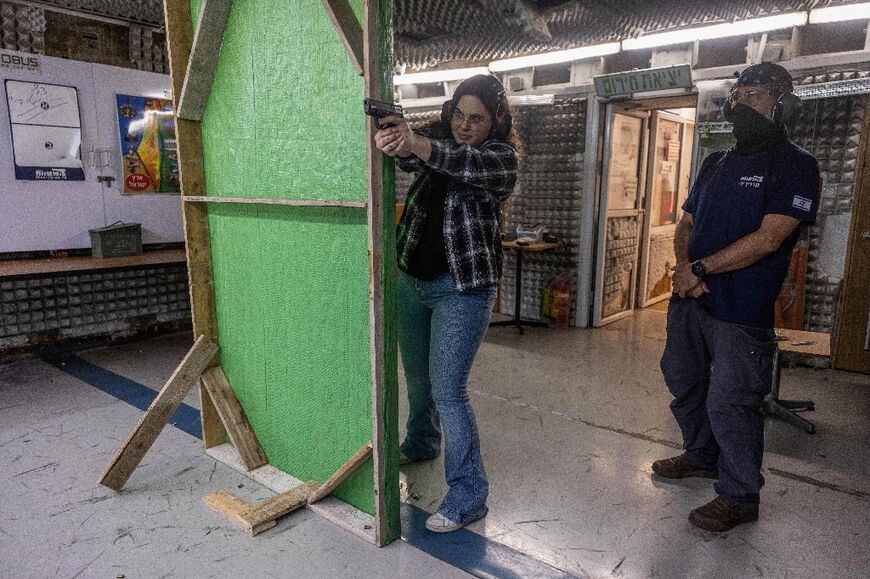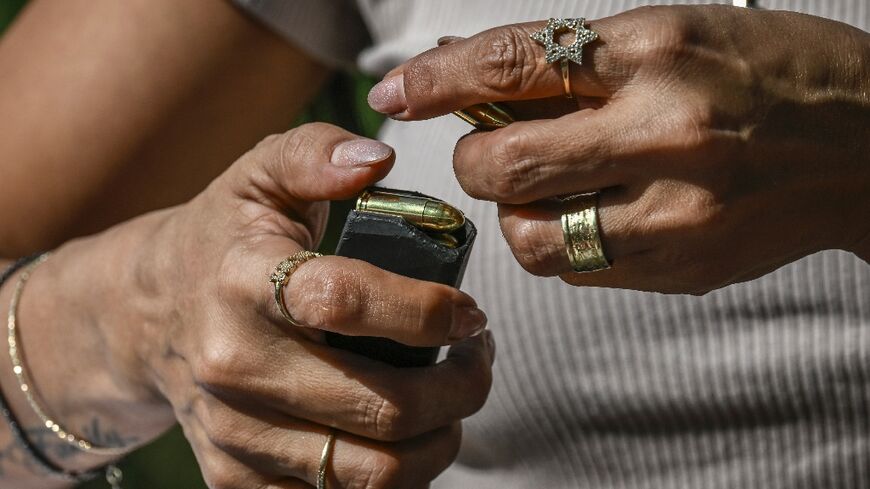Israeli women rush to buy guns in October 7 aftermath
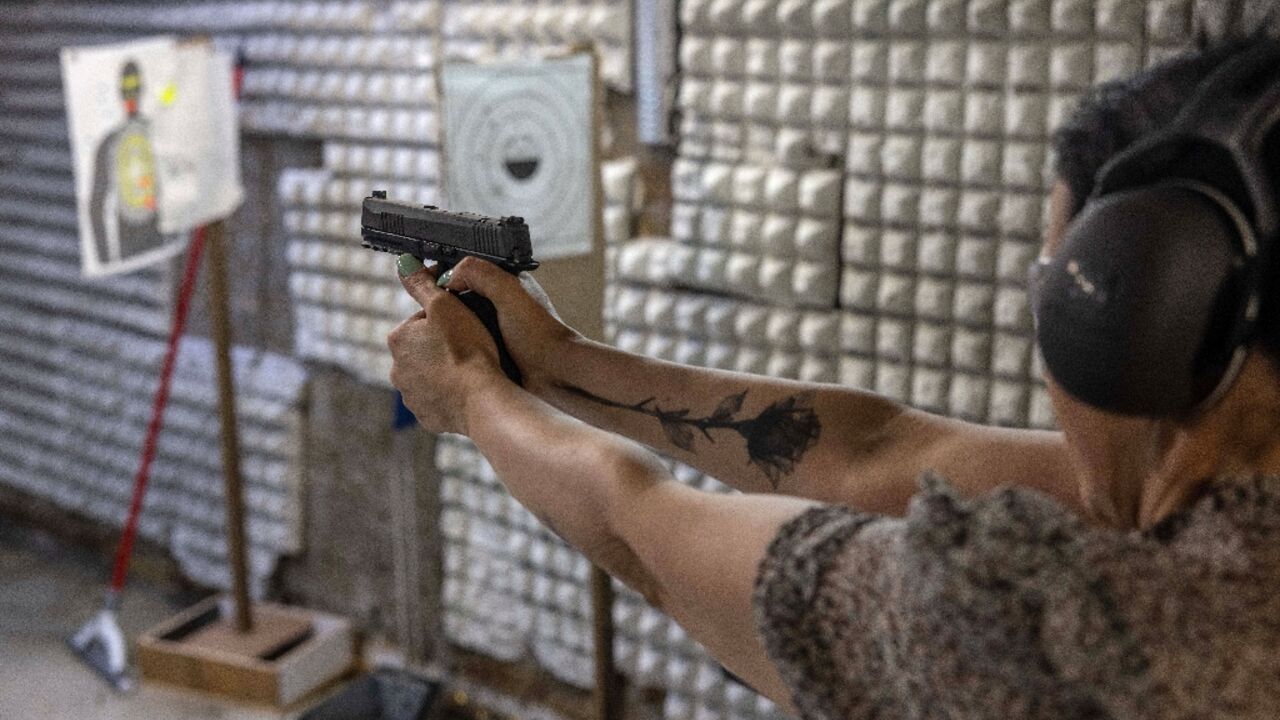
With many Israelis gripped by a sense of insecurity following Hamas's unprecedented October 7 attack, the number of women applying for gun permits has soared, while feminist groups have criticised the rush to arms.
According to security ministry data, there have been 42,000 applications by women for gun permits since the attack, with 18,000 approved, more than tripling the number of pre-war licenses held by women.
The surge has been enabled by the loosening of gun laws under Israel's right-wing government and its far-right security minister Itamar Ben Gvir.
More than 15,000 women civilians now own a firearm in Israel and the occupied West Bank, with 10,000 enrolled in mandatory training, according to the ministry.
"I would have never thought of buying a weapon or getting a permit, but since October 7, things changed a little bit," political science professor Limor Gonen told AFP during a weapons handling class at a shooting range in the West Bank settlement of Ariel.
The October 7 attack that triggered the war resulted in the deaths of 1,194 people in Israel, mostly civilians, according to an AFP tally based on Israeli official figures.
Israel's retaliatory offensive has killed at least 37,431 people in Gaza, also mostly civilians, according to the territory's health ministry.
"We were all targeted (on October 7) and I don't want to be taken by surprise, so I'm trying to defend myself," Gonen said after the class, an obligatory step for acquiring a permit.
- 100,000 armed civilians -
While the immediate trigger for the surge in gun buying was the Hamas attack, Ben Gvir was already pledging to reform firearms legislation when he became security minister in late 2022.
He promised to raise the number of civilians holding weapons and "increase self-defence capacity".
Under Ben Gvir, the process for getting a gun license has been sped up, with Israeli media reporting that in the immediate aftermath of the Hamas attack the authorities were often clearing hundreds of permits per day.
Eligibility criteria for gun ownership in Israel now include being a citizen or permanent resident over the age of 18, having a basic command of Hebrew and medical clearance.
The full list of requirements makes it nearly impossible for non-Jews to obtain a permit.
In March, Ben Gvir, who is himself a settler in the West Bank, hailed civilian weapon ownership passing the 100,000 mark, while showing off his own gun at a rally.
But his rush to put deadly arms into the hands of ordinary Israelis has drawn criticism too.
The Gun Free Kitchen Tables Coalition, an Israeli initiative founded by feminist activists, condemned the civilian arms race.
It is "a strategy of far-right settlers to consider the arming of women to be a feminist act", a spokesperson for the group of 18 organisations told AFP.
"The increase of weapons in the civilian space leads to an increase in violence and murder against women. It's time for the state to understand that individual safety is its responsibility."
- 'More safe' -
Community manager Yahel Reznik, 24, said she now felt "a lot more safe" in Ariel, which sits three kilometres north of the Palestinian city of Salfit.
"Thanks to my training I will be able to defend myself and protect others" from an attack, she told AFP.
Violence in the West Bank, which was already rising before the war, has surged since October 7.
At least 549 Palestinians have been killed by Israeli settlers and troops across the West Bank since the start of the Gaza war, according to the Palestinian Authority.
Attacks by Palestinians have killed at least 14 Israelis, according to an AFP tally of Israeli official figures.
The surge in gun ownership is not limited to West Bank settlers. In the Israeli coastal city of Netanya, just north of Tel Aviv, Corine Nissim said she never leaves home without her gun.
The 42-year-old English teacher walked her three children to the park with a 9mm Smith & Wesson sticking out the back of her trousers.
"After October 7, I think like most people in Israel, I realised that the only person I can trust is myself," she told AFP, adding she bought a gun not to feel "helpless".
"The worst scenario that was going through my head was that, of course, terrorists attack me and my family in our own house," the mother said.
Her decision to own a gun initially surprised some in the seaside town known for its tranquillity and safety, she said.
"People watched me and said, 'This is so surreal to see you like this with a gun and with the baby'" said Nissim.
But, she said, others started to agree with her and said they would follow suit.
"Many women told me: 'I'm going to do it. I'm going to get a gun as well.'"


